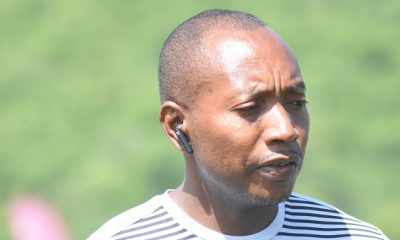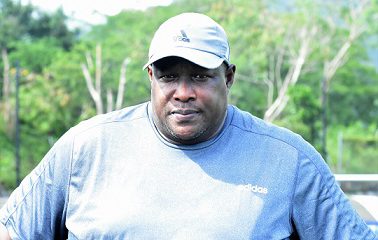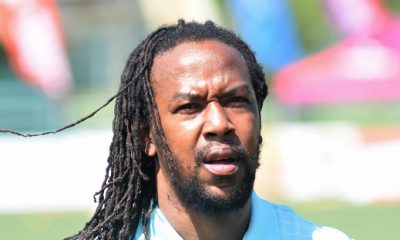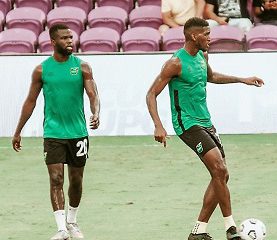Photo: The Most Honour Andrew Holness, Prime Minister of Jamaica, Captain Horace Burrell President of the Jamaica Football Federation and the Honourable Olivia Grange at a recent World Cup qualification match at the National Stadium in Kingston, Jamaica,
The Caribbean, more specifically Jamaica, took its place on the map in the world of football back in 1997. The sixteenth day of November that year, was the day when the Reggae Boyz sealed qualification to the 1998 World Cup that was hosted in France. Jamaica had made history as the first English speaking Caribbean nation to compete in the FIFA World Cup as well as the smallest nation in terms of size to do so. Then head coach, Rene Simoes, had led a successful qualifying campaign, building his squad around a core of locally based players as well as the late addition of a few English-based professionals.
Since then, the Reggae Boyz has failed miserably to replicate such hunger for success in their bid to book their place in the ‘Greatest Show on Earth’ for the second time. There seems to be a lack of genuine quality, desire, passion and belief that transcends to the fans. Team selection, tactics and the philosophy of the subsequent coaches have been called into question many times, but certainly there is the need for a different approach from the administration in order for the fortunes of this ‘Sunshine’ nation to change.
For any developing nation, competing at the World Cup is perhaps the ‘perfect springboard’ for development after getting the best possible exposure to display its ability, quality and potential. Despite a good display in France and even tasting victory (2-1 win over Japan), the Jamaica Football Federation (JFF) failed to restructure the local football program as outlined in the article ‘Levy, L. (2013, June 11). Short-term Vision Failing Local Football. The Gleaner.’ The article clearly stated that the JFF failed to overhaul the local football program and implement a regime that would give youngsters the kind of training that would equip them with the requisite skills to compete internationally.
After an excellent showing in the 2015 Copa America and a run to the Gold Cup final, many thought that the Reggae Boyz may have perhaps turned the corner. However, the lack of consistency proved pivotal as the Jamaicans failed to even reach the final stages of the 2018 CONCACAF World Cup qualifications after losing to Panama with a game to spare at the semi-final stage.
The recruitment of overseas-based players has not worked for the second consecutive qualifying campaign and as such there must be a change in its approach. With the talent pool and quality available to Mexico, United States and Costa Rica it is quite possible that Jamaica could fail to reach the next two to three World Cups.
With that in mind as well as Vision 2030 proposed by the government, it may be in the best interest of the JFF to shift their focus to youth development in an effort to acquire long term competitiveness regionally and internationally. Many have questioned whether there is enough local talent but the recruitment of Darren Mattocks, Deshorn Brown, Jason Johnson, Omar Holness, O’Neil Fisher, Damion Lowe and others by MLS clubs shows that there is quality on offer, but nothing locally, to harness or develop these hidden gems. Unlike Track and Field, there aren’t any clubs, infrastructure or coaches to take football players to the level required to compete with the best around the globe.
Youth policy success
At the 1998 World Cup, The Reggae Boyz defeated Japan in the group stages, however in the present moment they would struggle to get even a friendly international against the Samurai Blue. The Japanese have seen their project, J-League; A project for 100+ years, grow significantly, producing first class players in the form of Keisuke Honda, Shinji Kagawa, Makoto Hasebe, Hiroshi Kiyotake and Yuto Nagatomo just to name a few. Brazilian legend Zico, Gary Lineker and other international organizers were invited by the Japanese Football Association to restructure the local program and they advised on how to develop the entire football structure. Today, the J-League attract scouts from across Europe and the Samurai Blue has several of their natives plying their trade in some of the best leagues in the world.
The same can be said of world champions Germany who changed their approach to focus entirely on youth policy after elimination from the group stages of Euro 2000. Bundesliga chief executive Christian Siefert mentioned back in July 2010 that World Cup 98 elimination to Croatia and Euro 2000 embarrassment led to Die Mannschaft change to focus exclusively on youth development. Since then the Germans became very competitive reaching the semi-finals of World Cup 2006 and 2010, Euro 2012 as well as the final of Euro 2008 before 2014 success in Brazil.
The success of Japan, especially being a developing football nation, is certainly something the JFF should aim to replicate. The constant complaint about the lack of funding is no excuse because for any project, one has to convince potential sponsors to invest, which is exactly what the administration has to do. If the JFF can piece together a project that is practical, with the possibility of sustainable growth economically and on the pitch, then investors around the globe may be willing to spend their money. Jamaica is a brand that many want to associate themselves with, however they must be able to see the value of the project and be convinced by the vision.
Recommendations for the JFF
The implementation of a new policy will take lots of sacrifice, discipline and of course some serious funding. One must be cognizant of the fact that success of such a project will not be instant, but things will fall into place gradually. However, there are several steps that may be taken in the holistic development of professional athletes.
- The JFF must identify the best players on offer at the U14 and U16 level and do their utmost best to get these youngsters in academies across Europe, Mexico or South America. It is much easier for players in this age group to adapt and be taught how to be good professionals. Many may argue that some of these youngsters may opt to represent other countries much like Raheem Sterling. The JFF could bound them to contracts that ensures that in the future they have no option but to represent Jamaica internationally.
- Establish an identity or ‘style of play’ that every club as well as the national team must be taught and adhere to. The philosophy should be taught at every level from primary education to the senior level in order for the youngsters to grasp and appreciate the concept.
- Everyone surrounding the beautiful game (managers, coaches and trainers) must be certified by FIFA at the highest level and be extremely knowledgeable of the philosophy and identity chosen. The quality and ability of the players are invariably dependent on the quality of the coaches they encounter. Being certified at the highest level is perhaps the best possible way to produce players of the highest order.
- The governing body should make it mandatory for all the clubs to implement the same philosophy in order to produce players with a similar mindset and sense of style.
- The establishment of adequate infrastructure that houses the necessary equipment and environment where young talent can develop and improve themselves not just as professional players but as human beings.
- The administration as well as the clubs must seek advice from experts and organizers from the best countries, regions and even continents in order to find ways to improve the program/project continuously.
- Form partnerships or make agreements with the best academies around the world for local talents to get exposure to their training regime and methods for an assigned period annually.
In short, if Jamaica fails to overhaul the current way of doing things, we will continue to fail in our quest to return to the greatest stage where the beautiful games is played.


Must See
-


Other Sports
/ 7 years agoFloyd Mayweather says fight against Conor McGregor can happen
Nemo enim ipsam voluptatem quia voluptas sit aspernatur aut odit aut fugit, sed quia...
By yardie -


Other Sports
/ 7 years agoSerena sets Open era record with 23rd Slam
Temporibus autem quibusdam et aut officiis debitis aut rerum necessitatibus saepe eveniet ut et...
By yardie









You must be logged in to post a comment Login